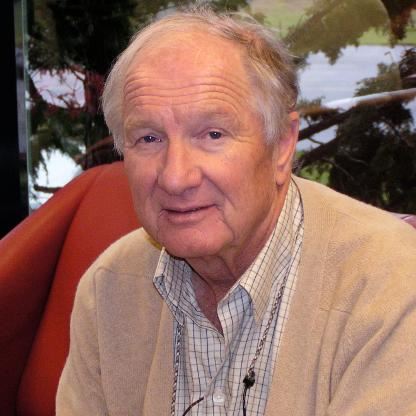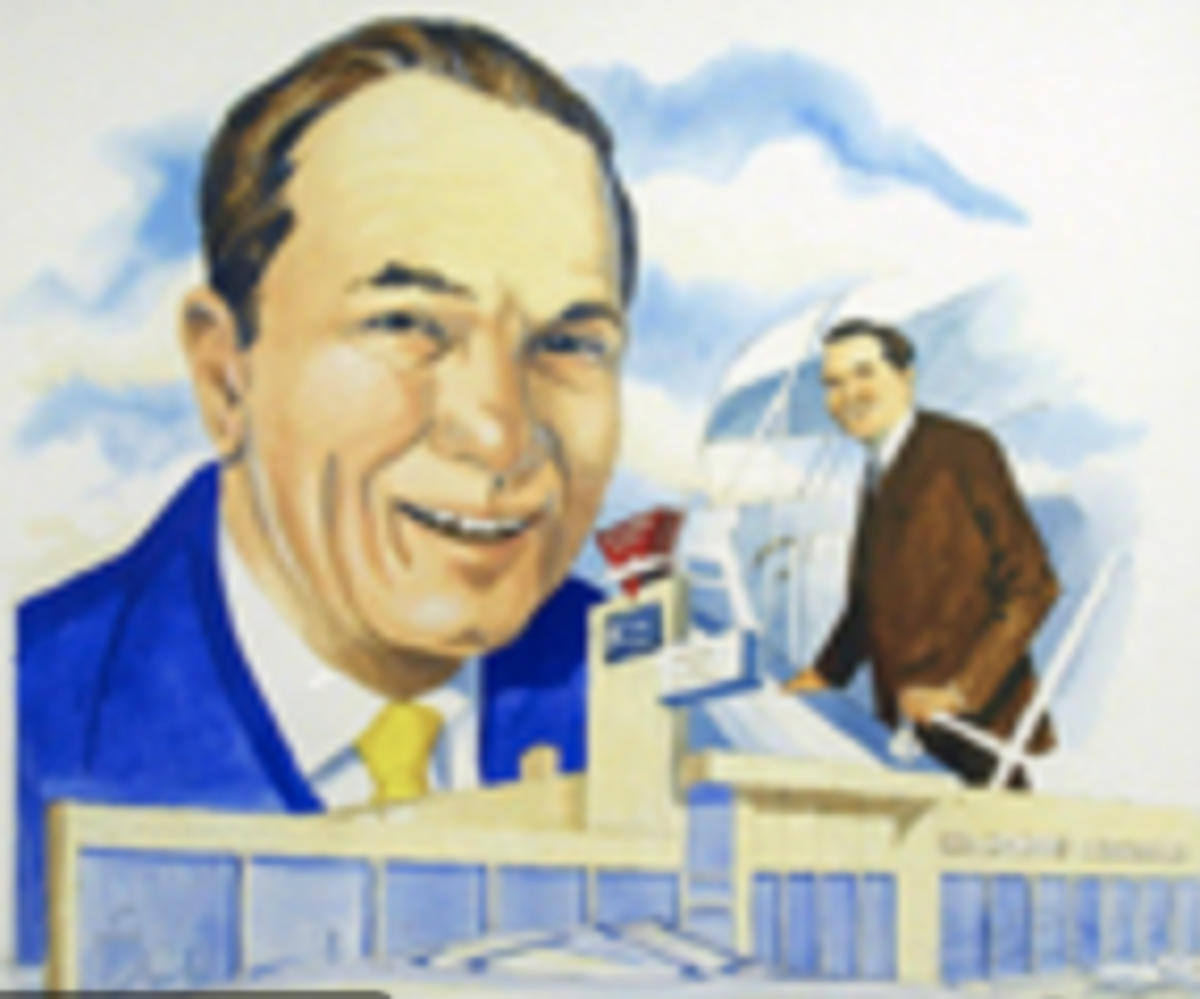 J. Orin Edson was a dreamer, a man who looked at things the way they were and wondered what if we did it differently. What if we did it smarter.
J. Orin Edson was a dreamer, a man who looked at things the way they were and wondered what if we did it differently. What if we did it smarter.
It was a trait that took him from a dirt lot, $400 and selling some used race-boat gear to the top of the marine industry. Edson not only realized the American Dream but surpassed it. He was possibly the only billionaire ever in the boating industry
The dream ended in the dark hours of August 27. Orin Edson died in Seattle, the city where he started. He was 87. The cause of death was reported to be Lewes Body Dementia.

Orin Edson was inducted into the NMMA Hall of Fame in 1993.
Edson’s start in the marine industry was inauspicious. Just out of the Army, just married and enrolled at the University of Washington, he set up on an open lot in Seattle to sell off the equipment from his boat-racing hobby. It happened quickly, so much so that he took on the sale of friends’ boats and sold them, too. Realizing that he might be able to turn this weekend parking-lot sale into a business, he dropped out of college and dove in.
Without a store front, an engine franchise or a boat line to sell, the odds were stacked against Edson. But he prevailed, buying unfinished plywood boats and painting them to order, then buying engines as needed from more established dealers in the area. His business model wasn’t the norm and kept challenging the way things were. At a time when dealerships shut down on Sundays, he opened to give customers two full weekend days to shop.
The retail business grew quickly. Soon, armed with a Mercury engine franchise, a small line of credit and boat lines to sell, he became a real force in the market. His company, Advance Outboard Marine, became the dominant retailer in the Seattle market with six stores. Then came stores in Dallas, Houston and Clear Lake, Texas, plus one in Miami.
Edson and his, by now, formidable team had a unique perspective on what the retail customer wanted. Unable to get that from boatbuilders, they contracted with a local business to build two low-cost, high-value runabouts to order. A year later, they took that business in-house and began the boatbuilding company the world knows as Bayliner.
Edson was as much of a maverick in boat-building as he was in retailing. He balked at the unnecessary high costs of offering multiple color choices, multiple engine choices, and a wide array of options. He took a custom business and made it a production-line business in the manner of Henry Ford. The result: consistent quality, less labor costs and killer prices.
Wringing out unnecessary costs that made boats too expensive became an obsession with Edson. And he didn’t put up with it for long. When engine companies sold sterndrive propulsion systems to boat builders, but refused to sell them outboards, he took decisive action. First, he met with other boatbuilders to bring more pressure on the engine companies. Then, when Chrysler was ordered by the federal government to sell-off all non-automotive assets, Edson was first in line to buy their marine-engine division.
It was a gutsy move: $17 million cash for an 850,000 square foot plant filled with engines, parts and equipment. Out of this was born Force Outboards and Edson had what he had sought: complete control of quality, cost and value-pricing of both boats and engines.
The later development of a state-of-the-art trailer factory gave birth to Bayliner’s signature product, the performance-matched boat, motor and trailer package sold as a single affordable unit.
This accomplishment, more than any other, catapulted the company to heights never before seen. Bayliner became the largest, most successful company in the marine industry. Sales topped $750 million/year. As many as 1,000 boats a week were built in 24 plants across the U.S. The company’s brands, including Bayliner, Force, Maxum and others, were represented by as many as 750 dealers in 40-plus countries.
For all this, Edson became wealthy. And famous.
Brunswick Corp. bought Edson’s company in 1986 for $425 million. The National Marine Manufacturers Association then inducted him into its Hall of Fame. “He, more than any other person, deserves credit for fathering the boating boom of the 1980s by bringing affordable boating to a mass audience,” noted NMMA in honoring Edson with the industry’s most prestigious award in 1993.
The lure of the marine industry was too strong to keep Edson on the sidelines for long. In 1992, he bought majority ownership of Westport Yachts and applied his production-line thinking to building more value, less cost into superyachts. A 164-foot Westport, Evviva, was subsequently commissioned and built as Edson’s personal yacht, on which he cruised extensively. When Edson sold his interest in the company in 2014, it was reputedly North America’s most prolific builder of superyachts.
Citing his remarkable success with the two boatbuilding companies — Bayliner and Westport Yachts — Forbes magazine praised Edson’s “remarkable ability to carry out a classic precept: simplify production in a traditionally custom-crafted business.”
Forbes also drew attention to his estimated net worth, more than $1.3 billion. Such personal insights were rarely appreciated by Edson, as he was both private and quiet in his personal life. The spotlight he most appreciated was one focused on the products he built.
In recent years, Edson and his wife, Charlene, generously shifted their attention to philanthropic interests.
Their most recent donation was $50 million to Arizona State University — $25 million to ASU’s College of Nursing and Health Innovation and $25 million to the Biodesign Institute to fund research on the causes and cures for dementia, according to the Arizona Republic. Since 2003, the Edsons have given more than $65 million to ASU.
Through the J. Orin Edson Foundation, Orin and Charlene have supported the Fred Hutchinson Cancer Research Center, Mayo Clinic and the ASU Foundation. In addition they started the Northwest Organization for Animal Help, an animal shelter in Everett, Washington.
Edson is survived by his wife Charlene; sons Jack and Mark; grandsons John and Alex; sister Carol; and brother Walt.
A private ceremony in Washington will be held for family members. A Celebration of Life event is planned for a future date. Until then, the family requests privacy.
And so, much as Edson lived his life, he will be interned in quiet dignity. The world is a lesser place and a legion of industry workers will mourn the loss of true visionary.

